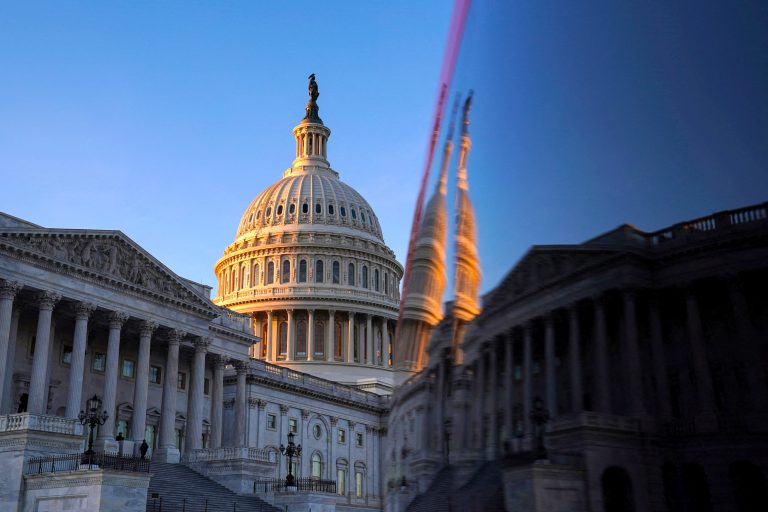Stock markets have swooned around the world since Silicon Valley Bank collapsed on Friday, March 10 as worried customers pulled their deposits. The bank, America’s 18th-largest, was followed by the closure of Signature Bank on Sunday, March 12.
Immediately prior, on March 8, cryptocurrency banking institution Silvergate had announced its coming liquidation, which would see all deposits full repaid.
By March 15, U.S. stocks had dipped as the financial contagion appeared to spread to Swiss banking giant Credit Suisse — reviving fears of a new banking crisis.
“For the first time since the financial crisis of 2008–09, confidence in the U.S. banking system has eroded,” finance commentator and author Andrew Moran notes in a feature published by The Epoch Times.
On March 12, the Fed, Treasury Department, and the Federal Deposit Insurance Corp. (FDIC) issued a joint statement outlining a plan to protect depositors and stem concerns about a broader failure of the financial system.
Another bailout?
Success
You are now signed up for our newsletter
Success
Check your email to complete sign up
While Treasury secretary Janet Yellen told CBS’ Face the Nation that “we’re not going to do that again” in regards to questions that the U.S. government might again step in to prop up the banking sector, the collapse of three banks in less than a week has conjured memories of the 2008-2009 financial crisis.
“As experts brace for the next domino to fall in the unfolding turmoil, the federal government and the Federal Reserve are trying to prevent a contagion effect that could devastate the broader economy,” Moran observed.
According to a Reuters/Ipsos poll completed on Wednesday (March 15), a bipartisan majority of Americans oppose U.S. taxpayers footing the bill when bad management causes a bank to fail, though Republican opposition to bank bailouts has softened over the last decade.
The poll’s results point to a potential political problem for Democratic President Joe Biden’s administration should the signs of shakiness in the U.S. banking sector worsen and prompt more aggressive government action.
The two-day Reuters/Ipsos poll found 84 percent of respondents – including strong majorities of Republicans and Democrats – think taxpayers should not have to pay to resolve problems caused by irresponsible bank management.
Banks have been stressed in recent months by rising interest rates, which reduce demand for borrowing money. In a series of moves telegraphed in advance to investors, the U.S. Federal Reserve, America’s central bank, has pushed interest rates higher over the last year in a bid to tame inflation.
Only 49 percent of Americans — 40 percent of Republicans and 55 percent of Democrats — said they favored government bailouts of financial institutions.
Still, support for bailouts was even more tepid a decade earlier, when the United States was emerging from a financial crisis which the government fought by spending hundreds of billions of dollars on bank bailouts.
In a 2012 Reuters/Ipsos poll, only 20 percent of Republicans and 53 percent of Democrats said they supported bailouts.
Financial risks
Some have warned against premature comparisons to the 2008-2009 financial crisis, given that America’s major banks are not in the same league as the cryptocurrency-focused institutions that failed over the last several days.
SVB, Signature Bank, and Silvergate mainly serviced startup companies and users dealing with large amounts of cryptocurrencies. With the sharp increase in interest rates following the pandemic stimuli, the expansion of capital slowed and cryptocurrencies such as BitCoin depreciated greatly in value, contributing to the downfall of the three banks.
“Now that there have been three bank failures in a short time span, the balance sheets of these entities are being more closely scrutinized by financial experts. So far, dozens of banks, from Charles Schwab to Citibank, are sitting on significant unrealized losses,” Moran, who is the author of a book called The War on Cash: How Governments and Banks Are Killing Cash and What You Can Do to Protect Yourself, wrote in a second, March 15 piece.
About half of respondents to the Reuters/Ipsos poll said they had heard at least a fair amount about Silicon Valley Bank’s implosion.
Sixty-eight percent said they had at least a fair amount of confidence in the stability of their own bank, and the same percentage had at least that level of confidence in banks more generally.
Some 77 percent of respondents said that shareholders and executives who profited from a bank in the days before it failed should have to return those funds to depositors.
U.S. regulators promised to make whole all depositors at Silicon Valley Bank and Signature Bank, even those with accounts above the Federal Deposit Insurance Corp’s standard $250,000 limit, without taxpayers having to cover any costs. Businesses make up many of the bank clients whose money had not been previously guaranteed by the government.
The Reuters/Ipsos poll showed broad bipartisan support for Washington backing bank deposits. Seventy-eight percent of respondents said the government should guarantee the deposits of individuals and 70 percent said Washington should backstop company deposits.
But a strong bipartisan majority also said depositors in banks should understand the risk of using a bank to make deposits outside of FDIC limits.
Some experts say the more expansive deposit guarantees regulators are applying for the troubled banks already amount to a bailout because they remove people’s incentive to guard against financial risk.
The Reuters/Ipsos poll, conducted online, surveyed 1,004 people nationwide and had a credibility interval of about 4 percentage points in either direction.
Reuters contributed to this report.
















